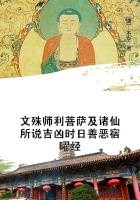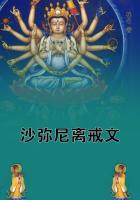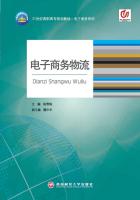If you ask a zealous member of the Zemstvo why it has not done more he will probably tell you that it is because its activity has been constantly restricted and counteracted by the Government. The Assemblies were obliged to accept as presidents the Marshals of Noblesse, many of whom were men of antiquated ideas and retrograde principles. At every turn the more enlightened, more active members found themselves opposed, thwarted, and finally checkmated by the Imperial officials. When a laudable attempt was made to tax trade and industry more equitably the scheme was vetoed, and consequently the mercantile class, sure of being always taxed at a ridiculously low maximum, have lost all interest in the proceedings. Even with regard to the rating of landed and house property a low limit is imposed by the Government, because it is afraid that if the rates were raised much it would not be able to collect the heavy Imperial taxation. The uncontrolled publicity which was at first enjoyed by the Assemblies was afterwards curtailed by the bureaucracy. Under such restrictions all free, vigorous action became impossible, and the institutions failed to effect what was reasonably anticipated.
All this is true in a certain sense, but it is not the whole truth.
If we examine some of the definite charges brought against the institution we shall understand better its real character.
The most common complaint made against it is that it has enormously increased the rates. On that point there is no possibility of dispute. At first its expenditure in the thirty-four provinces in which it existed was under six millions of roubles; in two years (1868) it had jumped up to fifteen millions; in 1875 it was nearly twenty-eight millions, in 1885 over forty-three millions, and at the end of the century it had attained the respectable figure of 95,800,000 roubles. As each province had the right of taxing itself, the increase varied greatly in different provinces. In Smolensk, for example, it was only about thirty per cent., whilst in Samara it was 436, and in Viatka, where the peasant element predominates, no less than 1,262 per cent.! In order to meet this increase, the rates on land rose from under ten millions in 1868 to over forty-seven millions in 1900. No wonder that the landowners who find it difficult to work their estates at a profit should complain!
Though this increase is disagreeable to the rate-payers, it does not follow that it is excessive. In all countries rates and local taxation are on the increase, and it is in the backward countries that they increase most rapidly. In France, for example, the average yearly increase has been 2.7 per cent., while in Austria it has been 5.59. In Russia it ought to have been more than in Austria, whereas it has been, in the provinces with Zemstvo institutions, only about 4 per cent. In comparison with the Imperial taxation the local does not seem excessive when compared with other countries. In England and Prussia, for instance, the State taxation as compared with the local is as a hundred to fifty-
four and fifty-one, whilst in Russia it is as a hundred to sixteen. A reduction in the taxation as a whole would certainly contribute to the material welfare of the rural population, but it is desirable that it should be made in the Imperial taxes rather than in the rates, because the latter may be regarded as something akin to productive investments, whilst the proceeds of the former are expended largely on objects which have little or nothing to do with the wants of the common people. In speaking thus I am assuming that the local expenditure is made judiciously, and this is a matter on which, I am bound to confess, there is by no means unanimity of opinion.
These figures are taken from the best available authorities, chiefly Schwanebach and Scalon, but I am not prepared to guarantee their accuracy.
Hostile critics can point to facts which are, to say the least, strange and anomalous. Out of the total of its revenue the Zemstvo spends about twenty-eight per cent. under the heading of public health and benevolent institutions; and about fifteen per cent. for popular education, whilst it devotes only about six per cent. to roads and bridges, and until lately it neglected, as I have said above, the means for improving agriculture and directly increasing the income of the peasantry.
Before passing sentence with regard to these charges we must remember the circumstances in which the Zemstvo was founded and has grown up. In the early times its members were well-meaning men who had had very little experience in administration or in practical life of any sort except the old routine in which they had previously vegetated. Most of them had lived enough in the country to know how much the peasants were in need of medical assistance of the most elementary kind, and to this matter they at once turned their attention. They tried to organise a system of doctors, hospital assistants, and dispensaries by which the peasant would not have to go more than fifteen or twenty miles to get a wound dressed or to have a consultation or to obtain a simple remedy for ordinary ailments. They felt the necessity, too, of thoroughly reorganising the hospitals and the lunatic asylums, which were in a very unsatisfactory condition. Plainly enough, there was here good work to be done. Then there were the higher aims. In the absence of practical experience there were enthusiasms and theories.
Amongst these was the enthusiasm for education, and the theory that the want of it was the chief reason why Russia had remained so far behind the nations of Western Europe. Give us education, it was said, and all other good things will be added thereto. Liberate the Russian people from the bonds of ignorance as you have liberated it from the bonds of serfage, and its wonderful natural capacities will then be able to create everything that is required for its material, intellectual, and moral welfare.















